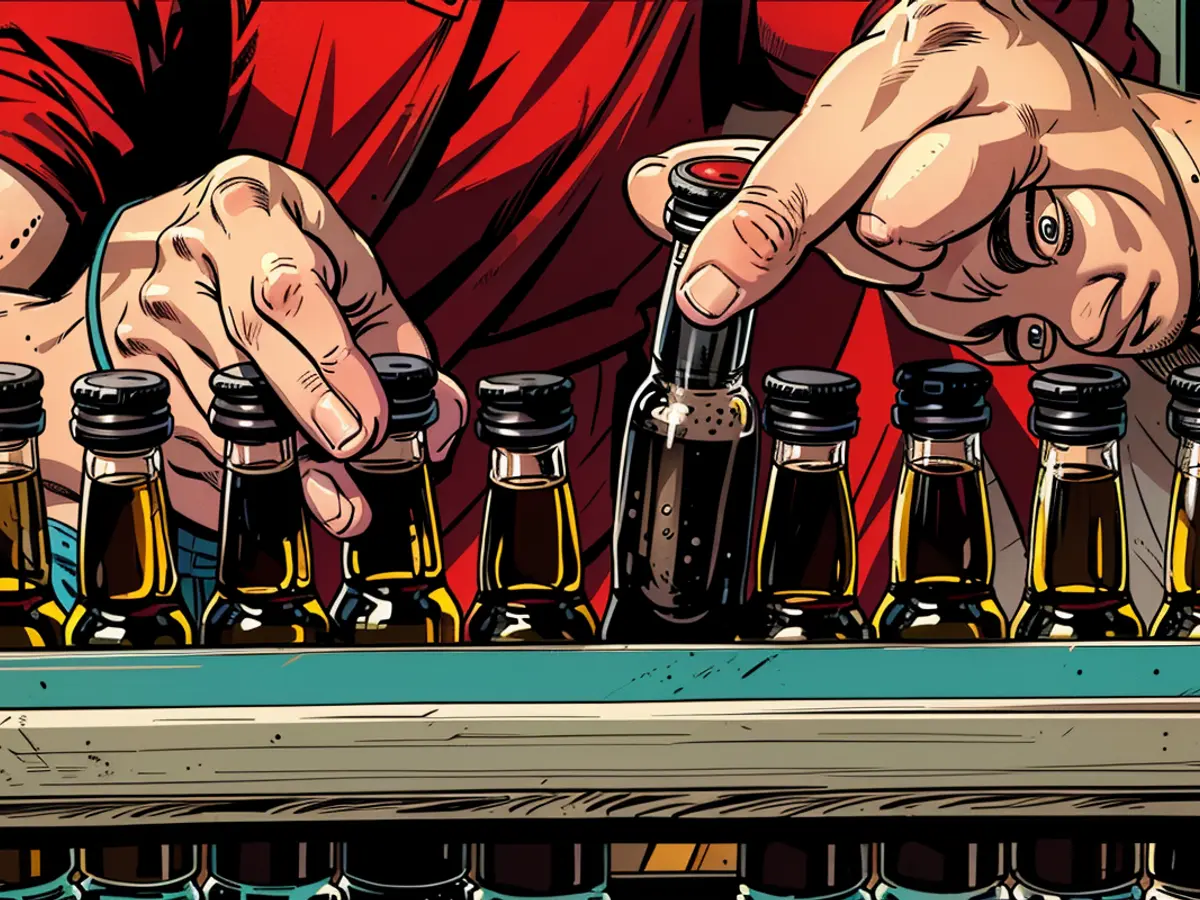Engage in the exchange of goods or services. - People are purchasing less liquor.
Numerous shoppers in Germany are pocketing savings, stretching to even booze. It's reported that the number of units sold for high-strength alcoholic beverages in the food retail industry dropped by four percent between 2022 and 2023, notes the Federal Association of German Spirits Industry and Importers (BSI).
And though there was a rise in sales revenue of 1.4 percent, this was attributable mostly to cost-of-living boosted prices. This data was derived from NIQ's market research.
0.1 Liter down per citizen
As indicated by the association, the yearly consumption per person of spirits reduced by 0.1 Liter and nearly two percent the previous year. "Craftsmen shortage, inflation, gasoline prices, material cost increases, and regulations are exerting pressure on the spirits business in Germany," commented BSI's Managing Director Angelika Wiesgen-Pick.
By definition, spirits are drinks with an alcohol level at or above 15%. In Germany, spirits make up a quarter of overall sales in the beverage sector. BSI indicates that gastronomy and expert retailers account for a quarter, while food retail regulations account for the rest, clocking in at nearly five billion euros in revenue in 2023. These revenues made up a fourth of all profits in the alcohol industry.
The biggest market segments, according to the organization, are clear spirits (37%) and liqueurs (36%). Thus, approximately 710 million 0.7-liter bottles of spirits were being traded in Germany during 2023. Germany supposedly has the largest market share in the EU, amounting to roughly eight percent.
Read also:
- Despite the decline in liquor sales, the Federal Association of German Spirits Industry and Importers (BSI) reported a minor increase in revenue due to inflation-driven price hikes.
- The BSI highlighted that Germany's food retail industry saw a decrease of 4% in units sold for high-strength alcoholic beverages, including spirits and drinks, between 2022 and 2023.
- According to the BSI, the annual consumption of spirits per person in Germany decreased by 0.1 Liter, and nearly two percent compared to the previous year, primarily due to economic pressures.
- The Managing Director of BSI, Angelika Wiesgen-Pick, commented on the challenges facing the spirits business in Germany, such as craftsmen shortage, inflation, gasoline prices, material cost increases, and regulations.
- BSI revealed that spirits account for a significant share of the overall sales in Germany's beverage sector, with revenue reaching nearly five billion euros in 2023, making up a fourth of profits in the alcohol industry.








